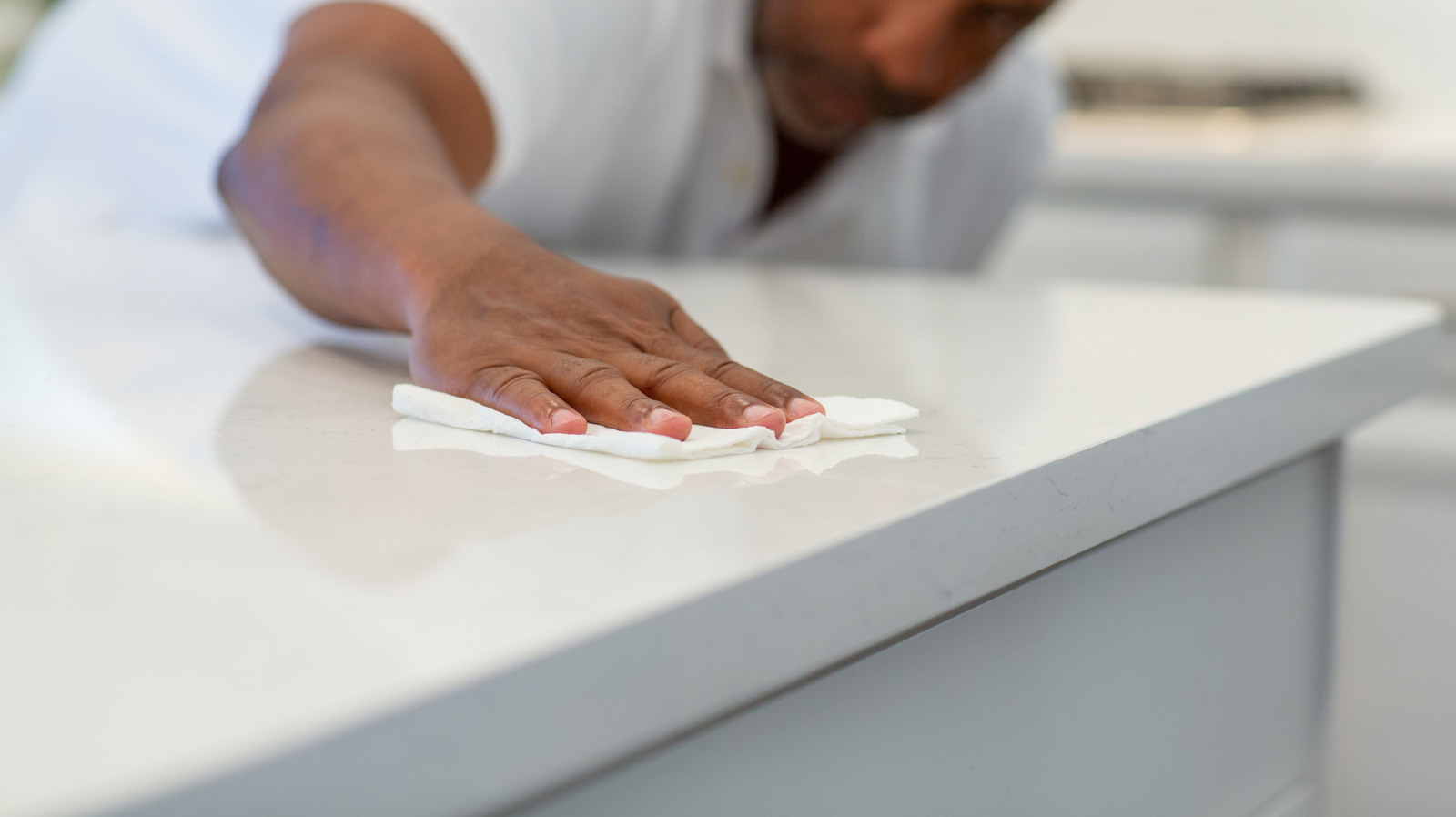
Maintaining a clean kitchen is essential for safe food preparation. However, choosing the right cleaning method for your kitchen countertops is crucial. While it might be tempting to use a Clorox disinfecting wipe, this can be detrimental, especially for quartz countertops. Clorox wipes contain citric acid, which is too abrasive for quartz surfaces when used frequently.
Even though quartz is non-porous, citric acid can erode its surface over time, leading to discoloration as the acidity etches the surface and breaks down the silica bonds found in many stone countertops, not just quartz. Similar damage can occur with any cleaning product containing citric acid or even from prolonged exposure to citrus juice spills. Other acidic or alkaline cleaners, like Windex, should also be avoided. To avoid common mistakes in cleaning quartz countertops, it’s important to scrutinize ingredient lists and be selective about your cleaning products.
How to clean a quartz countertop without damaging it
For cleaning quartz countertops, simplicity is key. Combine gentle dish soap or antibacterial soap with warm water, and use a microfiber cloth or soft sponge to clean the surfaces. This method effectively removes dirt and grime without causing scratches or chemical harm. While dish soap is a convenient choice, there are specialized cleaning products for quartz that clean and sanitize without damaging the stone. For example, the highly-rated Weiman Quartz Countertop Cleaner and Polish uses a pH-neutral formula to protect against sunlight damage and remove grease, stains, and water marks, all while leaving a citrus scent.
For deep cleaning and sanitizing, use either antibacterial dish soap or isopropyl alcohol. However, it’s important to handle isopropyl alcohol with caution due to its fumes and potential skin or eye exposure. Safety measures include wearing chemical-resistant gloves, using safety goggles, and ensuring good ventilation. After removing loose debris, mix two parts isopropyl alcohol with one part warm water in a spray bottle. Apply the solution to the countertops, allowing it to sit for at least one minute before scrubbing with a soft cloth and wiping down the surface again.
Tips for maintaining your quartz countertops
To extend the lifespan of your quartz countertops, promptly clean up any spills (especially those that are acidic or alkaline), use only soft cloths and sponges instead of abrasive materials, and regularly clean the surfaces. These practices help prevent damage and maintain the pristine condition of your quartz. Additionally, verify the compatibility of other cleaning products with various surfaces in your home, as some common cleaners may contain harmful ingredients.
If you’ve previously used abrasive products on your quartz countertops and notice discoloration or damage, consider exploring the cost of upgrading your countertops based on the material. If there’s no visible damage, it’s best to avoid using harsh cleaning products in the future.






